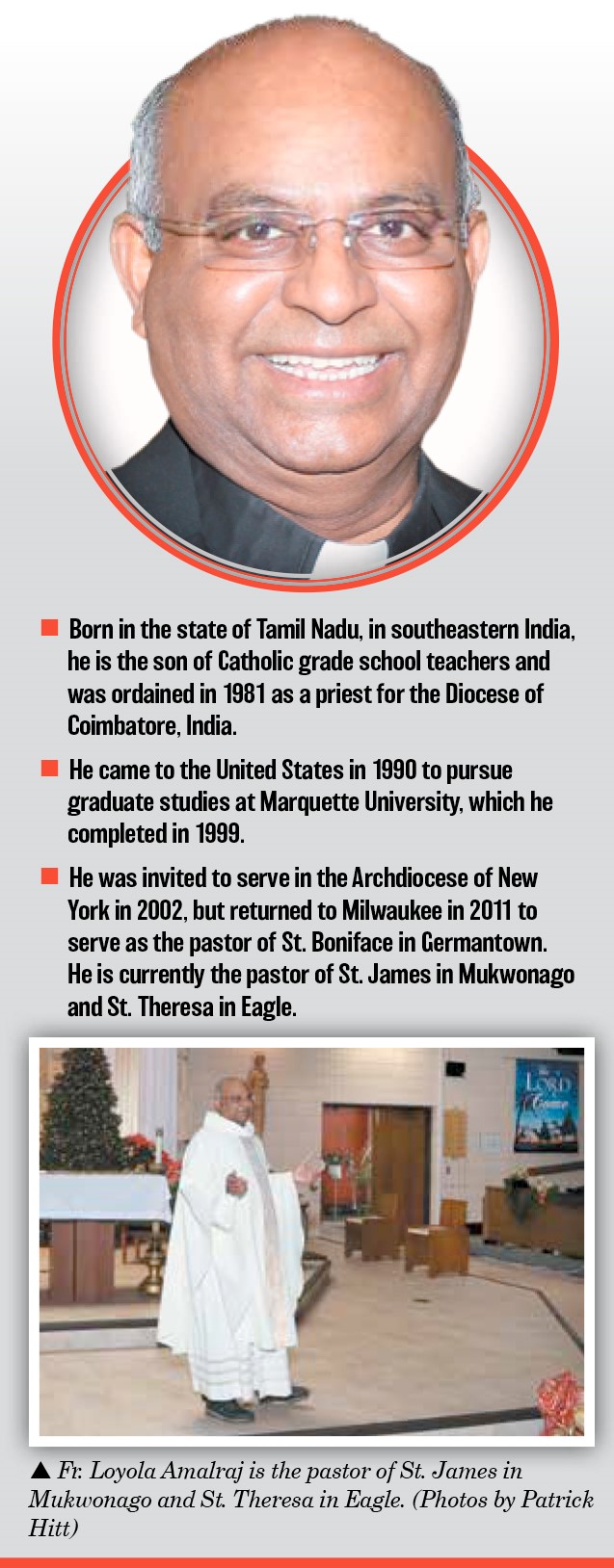Give Us Shepherds
Can you tell us about your first name? I’m assuming it is in honor of St. Ignatius of Loyola?
Yes, and it’s also my birthday — I was born on the feast of St. Ignatius of Loyola. One of the customs when I was a young boy was, if you had a saint on the day you were born, they would give you that saint’s name.
With a name like that, did you ever consider becoming a Jesuit?
Except for my minor seminary, most of my formation was with the Jesuits, so that has somewhat been an influence on me. But I never was tempted to join the Jesuits. In fact, the bishop of my home diocese cautioned me when I was going through formation, “Just because you have the name Loyola and that you have been going through some Jesuit formation, don’t you ever think of becoming a Jesuit.” But I got to know so many good Jesuit friends.
What was your childhood in Tamil Nadu like?
I really enjoyed my childhood. We had a nice Catholic community, even though it was predominantly Hindu. Our parish was called a “substation” to a main station where a pastor was appointed, and it was named after St. Francis Xavier. I have a lot of fond memories of that place — very beautifully green, rich fields and full of all things that grow. The school and the place, everything was beautiful to me.
What was it like growing up the son of two teachers?
My parents always brought us up very strictly because we were supposed to be the role models. All my siblings and I tried our best to be the first in the classroom. When my parents retired, they invited me to make a farewell speech. I told them, growing up as a kid, I had a good time, but I must tell you I was growing up with some confusion, because when I went home, I had two teachers at home, so it became my school. But when I went to school, I had my parents there, so it became my home. But they were lovely. My parents were the ideal people. They wanted us all to take our education to the next level.
You will soon celebrate four decades of priesthood. If you were to describe your life as a priest these last 40 years, what would you say?
I really see it as a process. You are not just ordained a priest and that’s it. You are everyday becoming a priest. It is a long journey and it is an extraordinary one. You are drawn into something deeper; you are being consumed into something. It is not something you do. I must say it has taken me 40 years of priesthood before I got a glimpse of the essence of the meaning of celibacy. It’s not that you’re not married to somebody else, it is love beyond human love, therefore you are filled with love and you devote yourself to that love and you are sustained every day. That would not have happened when I was a younger priest. Now you feel that love of God has to be a full-time job. You can’t compartmentalize it. You want to give it all. That’s why I say it is a journey, but somehow God puts things in my life that enabled me to discover that it’s a life of great love.
What is the most interesting place you have visited?
I have been going to India all my 30 years here, and I would always stop somewhere midway. So I’ve traveled extensively. I’ve visited several of the countries in Europe and I’ve visited Japan, Australia, and the last of my trips was New Zealand. New Zealand is one of the countries I would go anytime. It has very friendly people. That’s one of my desires, is to go back there.
You love music as well — what’s your favorite?
I like to listen to classical instrumental music on Pandora; I’ll turn it on when I cook or when I eat. It’s something that calms me. When I was in Saint Francis Seminary finishing my doctorate, a lot of the professors there would play classical music in the dining room and it was a beautiful community, and I picked up on that there.

